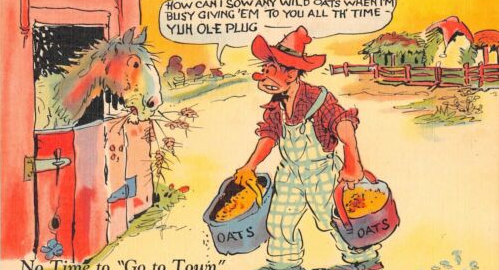May 18, 2023 /Lifestyle/ –The phrase “sowing wild oats” is thought to have originated in the 16th century. It is a metaphor for engaging in reckless or promiscuous behavior, especially during youth. The phrase is often used to excuse or explain such behavior, as if it were a natural part of growing up.
The link between “sowing wild oats” and juvenile male delinquency is likely due to the fact that young men are more likely to engage in risky or impulsive behavior. This is partly due to biological factors, such as higher levels of testosterone. It is also due to social factors, such as peer pressure and a lack of parental supervision.
Juvenile male delinquency can have a number of negative consequences, including academic failure, substance abuse, and criminal activity. It can also lead to problems later in life, such as unemployment, homelessness, and incarceration.
There are a number of things that can be done to prevent juvenile male delinquency. These include providing positive role models, offering educational and recreational opportunities, and strengthening families. It is also important to address the underlying causes of delinquency, such as poverty, discrimination, and mental health problems.
If you are concerned about a young man who is engaging in risky or impulsive behavior, there are a number of things you can do to help. You can talk to him about your concerns, offer him support, and help him to find positive ways to channel his energy. You can also seek professional help if necessary.
Today, the phrase “sowing wild oats” is still used to describe young people who are engaging in reckless or promiscuous behavior. However, it is less likely to be used to explain juvenile male delinquency. This is likely due to the fact that there is a greater understanding of the factors that contribute to delinquency, such as poverty, family dysfunction, and mental health problems.
Here are some of the reasons why the phrase “sowing wild oats” is linked to juvenile male delinquency:
- Young men are more likely to engage in risky or impulsive behavior.
- Young men are more likely to be influenced by their peers.
- Young men are more likely to be under the influence of alcohol or drugs.
- Young men are more likely to have a history of trauma or abuse.
- Young men are more likely to come from families with low socioeconomic status.
It is important to remember that not all young men who engage in reckless or promiscuous behavior will become delinquent. However, the factors listed above can increase the risk of delinquency. If you are concerned about a young man in your life, it is important to talk to them about the risks of delinquency and to provide them with support.

